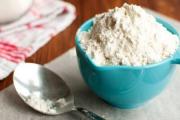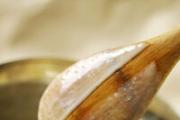Why does red wine have a headache? Causes of Wine Headaches Why Home Wine Hurts a Head
Wine is different from all other alcoholic beverages. You can't just drink it - they need to enjoy, savor its taste and aftertaste.
Nobody can call vodka or beer exquisite drinks. But, despite all of the above, even wine has a significant drawback - headaches after drinking it.
It is worth considering in more detail why wine gives a headache, and what to do in such a situation.
Causes of painful sensations in the head
People often notice head pain after drinking wine. Undoubtedly, the head can hurt after any alcoholic beverages, but a person rarely expects such symptoms from wine - a natural, refined and tasty product.
So why is this happening? Experts identify several main reasons that can provoke headaches.
You should consider them in more detail:
- A large amount of alcohol consumed. Almost everyone has experienced hangover symptoms after a fun feast. But for some individuals, this phenomenon becomes the norm, and therefore their head hurts constantly.
- Poor quality wine on the eve of a headache. This includes wines whose shelf life has already expired. It may seem to some that the drink in question cannot have an expiration date, because, on the contrary, the older the wine, the tastier it is. But this statement does not apply to cheap wines. Therefore, if the drink is made in an industrial production, it is better to carefully study the date of its production, so that later you do not ask questions about why the headache from wine.
- Poor quality raw materials used in the production of red wine. As mentioned above, when buying cheap wines, you do not need to rely on something extraordinary. Not surprisingly, after taking them, a person has a headache. Of course, it is not a fact that a truly original drink is hiding under an expensive label. Therefore, it is recommended to give preference only to proven brands of wines that use exclusively high-quality raw materials.
- Allergic reaction or individual intolerance to wine by the body of a particular person. This is because the body cannot tolerate any component used during the preparation of wine or wine drink. In this case, headache symptoms are not uncommon.
Most often, allergies or intolerances concern different grape varieties. In addition, an allergic reaction can occur to the fermentation process itself.
Very often a person is faced with the fact that his head hurts only after drinking red wine.
Why is this phenomenon observed? The explanation is very simple: red wines contain sulfites, which are used as preservatives at the wine factory, and amines, which can provoke spasms in the vessels of the brain.
In the case of the use of such substances, the manufacturer is obliged to notify the consumer about this by means of the appropriate inscription on the wine label.
If a person knows that he does not tolerate such components, then he needs to completely abandon the use of red wines.
How to relieve head soreness
If it was not possible to avoid a headache after wine, then what to do? Experts suggest using one of the proven ways to deal with a headache.
They are as follows:
- Taking vitamin C. For headaches, you can use both a soluble pill and a natural product - eat an orange, lemon, grapefruit, bell pepper or fresh cabbage.
- It is recommended to have a hearty breakfast with fatty and hearty foods. It can be scrambled eggs with a slice of bacon or cheese.
- Replenishment of the body's missing fluid. Drinking alcohol can cause dehydration, which can negatively affect the entire body. In addition, it is it that disrupts the blood circulation process and leads to the fact that a person has a headache after red wine.
- Performing physical exercises that can alleviate the condition by improving the impaired blood circulation process.
- One of the most effective and simple recipes for headaches after wine can be safely called pickle.
- Taking aspirin and going to a contrast shower is ideal for headaches.
In the event that a person does not believe in folk remedies for relieving pain, he can use medications that can be purchased at any pharmacy.
Medicines that eliminate head pain
It often happens that one headache pill is not enough, so people take one medicine after another.
It is very important to make sure that the drugs differ, as an overdose may occur.
To cope with pain faster, you should stock up on several means. They can be like this:
- Vitamin C dissolving tablets.
- Acetylsalicylic acid. It should be borne in mind that such a remedy should not be used by people with problems of the gastrointestinal tract.
- Aquacitramone is a medicinal product, the intake of which is permissible only 24 hours after the wine has been drunk.
- Sorbex - tablets that relieve the symptoms of body intoxication well. Just a couple of capsules are enough and the symptoms in question will gradually disappear.
- No-shpa is an ideal remedy for the development of migraines. This drug quickly relaxes blood vessels and the person no longer has a headache.
- Magnesia is a substance that restores the normal functioning of the nervous system.
- Ethylmethylhydroxypyridine succinate is a drug that fights pain in the head well. The medicine normalizes blood flow.
If a person has a severe headache, and before that he has drunk wine, then the excessive use of medications can only aggravate the situation.
In no case should you treat a "hangover" with another dose of alcoholic drink. Which one exactly? Anyone.
Even wine will provoke another wave of intoxication in the body and can bring a person to treatment in a hospital.
In the case when all of the above methods and means have been tried, and the head continues to hurt, it is better to seek the help of a qualified specialist and undergo a proper examination.
The doctor will identify the true cause of the symptoms that have arisen and prescribe adequate treatment, which will quickly restore the body after a fun feast.
Useful video
Strictly speaking, the head can hurt from any alcohol, depending on how much you drink. But red wine makes headaches more often, although it is considered useful in small doses. What's wrong with red wine?
We strained ourselves here, experimented and finally found out what causes headaches after drinking red wine, and most importantly - how to avoid it.
The choice of wine is different for advanced drinkers and beginners.
Some have enough of their own experience and flair, while someone has to be guided by feedback from the forums or seek help from professionals.
However, both of them are driven by the same motivations - not to make a mistake in the choice and not to be disappointed in the purchased drink.
More than once, many have come across such a situation when the impression of a pair of glasses of seemingly good red was thoroughly spoiled by a sudden headache.
After such a tasting, the thought that under the guise of wine was slipped into you some kind of cheap swill probably flashed through my head.
But do not rush to draw conclusions, perhaps this particular wine is simply not suitable for you. We found out what causes headaches after drinking red wine and how to avoid it.
There is chemistry everywhere!
Sulfur aldehyde is always present in wine in varying amounts. A number of researchers are inclined to believe that it is sulfur dioxide that causes headaches after drinking red wine.
It can get into the drink in several ways: when winemakers deliberately use it, spraying vineyards to combat harmful fungi, and treat the equipment of the winery with it, or in a natural way through the root system of the vine from the soil and in the process of fermentation from yeast.
In some countries, such as the USA, the content of sulfur dioxide must be indicated on the packaging.
But if the label does not contain any information about him, this does not mean that he is not in the wine.
So different sulfur
So, in "biodynamic" wines it is much less, and it can get into wine only when processing barrels or when bottling wine.
"Organic" wines also contain less sulfurous aldehyde. Such wine is certified and receives the corresponding logo on the label.
In addition, producers of both "biodynamic" and "organic" wines use elemental sulfur rather than sulfur based on petrochemical raw materials.
So white or red?
However, there is one significant flaw in this scientific theory: there are more sulfites in white wine, which means that the head should also ache from it, but usually it is red that is the culprit of the headache.
Recent studies show that it is not so much sulphurous aldehyde that is to blame for headaches, but rather histamine, which reacts with alcohol.
The substance is found in the skins of grapes. Red is left to ferment along with the skin, due to which the content of histamines in red is higher than in white.
Thick skin is to blame
Long-term observations of the winemakers themselves allowed them to draw their own conclusion and suggest that the thickness of the grape skin may affect the headache.
Grapes with thicker skins take longer to ripen and the histamine concentration in wine made from these grapes may be higher.
To protect yourself from headaches, you should avoid wines made from thick-skinned grapes such as Zinfandel, Syrah and Cabernet Sauvignon.
Instead, opt for wines made from fine-skinned grapes such as pinot noir and merlot.
Open question
While scientists continue to argue about the causes of headaches after drinking red wine, we can only slightly adjust the rules for choosing red.
In order to avoid undesirable consequences, it is worth paying attention to "biodynamic" and organic wines, and when choosing between them, be guided by the fact that wines made from grapes with a thin skin will cause fewer problems.
Many people, after alcohol abuse, begin to suffer from headaches. The main reason why the head hurts after alcohol is the intoxication of the body with half-life products.

There are several main reasons that can trigger the development of migraines after drinking alcoholic beverages.
- Exposure to a large amount of alcohol on the liver leads to the fact that it is not able to produce glucose in the amount necessary for the normal functioning of the body. The brain does not receive the glucose it needs to function.
- Drinking alcohol can cause severe dehydration. Alcohol, having a diuretic effect, provokes a person to frequent the toilet room.
- Metabolic disorders also affect the production of prostaglandin (a substance responsible for the body's sensitivity to pain). Everyone has long known that after drinking alcohol in a person, the pain barrier is significantly reduced.
- When alcohol breaks down, acetaldehyde is released into the body. It is this component that provokes the appearance of nausea, vomiting. An excess of it in the body leads to an increase in heart rate, a person is thrown into a fever, profuse sweating is observed.
- Alcohol abuse provokes vascular edema, which, in turn, can affect the development of migraine.
- Headache after drinking due to oxygen starvation, which has a devastating effect on the cerebral cortex. Half-life products negatively affect the process of hematopoiesis. Blood clots form blood cells that carry oxygen. This is what affects the fact that the body receives less oxygen in the dose it needs.
Even in small doses, alcohol has a negative effect on the central nervous system.
In the morning after a booze, the process of rejection by the body of cells that have died under the influence of alcohol begins. Intracranial pressure rises. It is worth noting that the more cells died the day before, the more headache after alcohol in the morning.
The reason is the fault

There are many people who can drink any alcoholic beverages without consequences, but just a small glass of wine can ruin the morning. So why does wine have a headache?
- In most cases, the cause of the headache after drinking wine may not be alcohol, but something else. Some people successfully cope with these effects with antihistamines. From which we can conclude that the reason lies in the individual intolerance to the constituents of the wine.
- The reason why a headache from wine can also be an allergic reaction of the body to sulfites and amines that make up this drink. These substances are added to the drink to prevent premature spoilage.
Usually the activity of bacteria is suppressed by cultured yeast, but most winemakers are unsure of their effect and are forced to add sulfites to wine. For example, sulfur dioxide suppresses the development of negative flora, inhibits oxidation processes and helps preserve the natural taste of this drink.
It is quite easy to check if you are allergic to sulfites. If you easily absorb any other canned food, for example, olives, then your body perfectly absorbs sulfites. Then amines are the cause of migraine after wine. Amines can be divided into two main types:
- Histamines
- Tyramines
The former provoke the expansion of the vessels of the brain, and the latter, on the contrary, lead to their narrowing. In any case, you are guaranteed a headache after alcohol. Of course, amines are also found in other foods, which include some types of cheese, baked goods, horseradish, and more.
Even if your body does not react in any way to the use of these products, it still does not mean anything. It should be remembered that the amine content in wine is several times higher than that in other products.
Everyone should know this

So how do you avoid headaches? Ideally, you should stop drinking alcoholic beverages. But, if you still want to drink a glass of wine with guests on a holiday, you should approach its choice with all responsibility.
- Check the label on the bottle when you buy. Any conscientious winemaker will definitely indicate on the label what is included in the wine, because drinking such a drink can have unpredictable consequences for people prone to allergic reactions. However, some selfish people do not include these components in the composition. In this case, it remains to purchase the goods at your own peril and risk, finding out its content in the process of drinking.
- If there are reactions to sulfites, it is recommended to try organic wines. Of course, they are much more expensive and not everyone can perceive them to taste, but this will help to avoid undesirable consequences the next morning after the holiday.
Most people are not so much concerned about the question of why alcohol has a headache, but how to cope with the consequences of excessive drinking. The solution to three main tasks will help to remove the hangover syndrome.
- Eliminate pain symptoms
- Restore water-salt balance
- Remove toxins from the body
Walking in the fresh air will help get rid of pain. The blood, saturated with oxygen, helps to restore the functioning of the brain, relieving stress.
So that your head does not hurt the next morning after drinking:
- Do not mix alcoholic beverages with each other.
- It is recommended to eat non-fatty foods: meat, fish, porridge for garnish, salad dressed with sunflower oil. Fat, envelops the walls of the stomach, prevents the absorption of toxins into the body, but then the degrees can "catch up" at the last moment.
- Drink plenty of alcohol, due to the fact that it causes dehydration. For one glass of strong drink, about two glasses of liquid without gas, otherwise the bubbles will more actively help poison your body.
You can drink, but in moderation and only high-quality alcoholic beverages! An underground surrogate can cause severe intoxication of the body and lead to serious consequences, including death.
Nobody is immune from this. Here you are drinking a glass of expensive red wine at dinner, and after an hour your head is gripped by a throbbing headache that spoils not only your mood, but the whole evening as a whole. The reason for this injustice lies in the high level of histamine - a compound responsible for the appearance of hives, sneezing attacks, itching of the skin, bronchospasm, migraine, which, as you understand, is contained in wine. But it's enough to endure it! Let's not let such a slack prevent us from enjoying this noble drink! Today we will tell you about three effective ways to help get rid of this annoying nuisance.
1.Drink a glass of water with every glass of wine
It leads to dehydration of the body, it is easy to forget about it when there is a fragrant dark burgundy liquid in your glass. To avoid the negative effects of alcohol on your body, including headaches, make it a habit to drink wine mixed with water. Not together, of course, but separately. After each glass of wine you drink, drink a glass of regular non-carbonated drinking water. The waiter and the entourage will be perplexed, but your head will thank you.
2. Two aspirin tablets
If you plan to get drunk to unconsciousness, then this item is swept aside immediately. If your norm for tonight is a couple of glasses, then read on. Get an over-the-counter pain reliever that can thin your blood a bit. Two tablets of aspirin, ibuprofen or acetaminophen, taken 10-15 minutes before the meal, will eliminate the headache problem. Plus you'll have another reason to drink an extra glass of water. If this idea worries you and you do not trust your body, then, of course, consult a doctor, but if you are an average healthy dude, then this method will not harm you.
3. Don't eat sweets with wine
The combination of sugar and alcohol significantly increases the risk and severity of potential headaches. Therefore, if you want to eat dessert, eat it, but only with coffee or tea, and at least 30-40 minutes after the last glass of wine you drink.
Time to read the article: 14 minutes
Headache after wine what to do
Very often situations develop when the consumption of wine (even of high quality, good) provokes headaches. These frequent cases cause a lot of controversy about the benefits and harms of such alcoholic beverages. Based on the latest research of scientists in this area, we can conclude that in fact, the negative effect of ethanol, which is part of any alcohol, is so great that it interrupts all possible benefits.
Moreover, this applies even to elite wine varieties made on the basis of the best selected grapes. If there is no intention of becoming a complete teetotaler and generally forgetting the taste of aromatic alcohol, you will have to study this topic in more detail, in particular, why the head hurts from wine, how to prevent such a development of events and quickly stop the unpleasant sensation.
The main causes of "wine" migraine
In principle, a headache can visit a person from drinking any kind of alcoholic beverage. As for wine, the appearance of this syndrome is perplexing, because most often this type of morbidity provokes the consumption of spirits. But wine does not belong to this category. All drinks belonging to the category "wine" are classified according to the following degree:
- Sparkling wine: 9-13%.
- Dry: 10-11.5%.
- Semi-sweet: 12-15%.
- Liqueur: 12-16%.
- Sweet: 14-18%.
- Dessert: 15-17%.
- Fortified: up to 21%.
There are many reasons why a headache after wine. To understand all the ins and outs of the situation and understand how to get rid of a painful headache (or cephalgia), first of all, you should find out the culprits, and only then take measures to stabilize the situation.
It has been noticed that migraine most often appears with the consumption of red wines, while white or rosé very rarely provokes malaise.
Wine composition as the main culprit
To find the answer to the question of why red wine has a headache, you should study the composition of this alcohol in detail. Cephalalgia in this case is based on a special, specific composition of the product and some of its components.
- Histamine. Biologically active compound, which is found in large quantities in the peel of grape berries. In the process of making wine (during fermentation processes), histamine is converted into liquid. This substance is an allergen and in some cases it becomes the culprit of severe headaches.
- Sulphites. Many industrial wines are added with preservatives belonging to the sulfite class (sulphurous acid salts). They are designated by the marking E220-E229. For most people, these nutritional supplements are absolutely harmless, but there are some individuals (with special gene mutations or patients with bronchial asthma) who do not adequately respond to the intake of this compound in their body. And one of the manifestations of such intolerance is cephalalgia.
- Amine. Organic compounds that can provoke spasm of blood vessels, the result of which is the appearance of a headache.
With a person's predisposition to the rapid development of migraines, when choosing a wine, you should carefully study the composition of the drink and do not take products that include preservatives, food additives and flavors.
Loss of measure when drinking
Excessive consumption of aromatic, noble alcohol also becomes the culprit of severe cephalalgia. Indeed, despite the relatively low turnover, drinks in this category also contain ethyl alcohol. With excessive enthusiasm, a person's liver ceases to cope with the load, which causes the following situations to develop:
- a drop in plasma glucose levels;
- the brain is faced with a noticeable deficiency of oxygen and nutrients;
- in connection with the abundant intake of ethanol into the body, mass death of brain cells begins, which leads to the appearance of migraine.
Developed dehydration is another culprit for cephalalgia associated with excessive consumption of red wine. Like any other representative of the alcoholic world, wine provokes increased urination, the result of this syndrome is dehydration. A rapid decrease in the concentration of moisture in the cell tissue provokes irritation of neurons, which leads to spasm of blood vessels.

The brain, in response to a negative situation, turns on all the forces to stop the outflow of fluid and collects the remaining moisture to maintain brain activity. This leads to the appearance of edema in the brain regions and a subsequent increase in intracranial pressure. Such processes become the causes of severe cephalalgia.
Poor quality of alcohol
Wine alcohol has a wide range of quality gradations. The use of surrogate raw materials, powdered drinks, which attract cheapness (usually such wines are poured into cardboard packages), all this leads to the appearance of a headache. By the way, when choosing a good drink, the price should not play a dominant role. In this case, you should focus on the following indicators:
- manufacturer's popularity;
- reviews about a particular brand of drink;
- buying alcohol from reputable stores.
If the goal is to decide which wine does not have a headache, you just need to choose exactly "your" drink, sometimes it has to be done by trial and error. But it is necessary to decide on the right drink, especially for people who have a predisposition to headaches.
According to experts, when choosing a wine, you should not be guided by its age. After all, young alcohol has much greater benefits than other, more seasoned.

Also, other situations can become the culprits of the painful syndrome after the accepted glass of wine. In particular:
- improper storage conditions for wine products;
- low-grade raw materials used in the preparation of the drink;
- the end of the shelf life (only elite, premium and homemade wines can only improve their taste over time, cheap alcohol has a limited period of consumption).
In this case, before starting the tasting, you should carefully study the content itself. If there is a strange sediment in the drink, the wine has changed color, acquired an unpleasant sour smell and taste, it should be discarded. The unfortunate outcome can be indigestion, severe food intoxication, and severe migraine headaches.
Individual intolerance
A severe headache can also happen due to intolerance to this type of alcohol... In this situation, cephalalgia develops due to the ingress of a certain irritant into the internal systems. This syndrome tends to worsen with continued consumption of inappropriate alcohol and is stopped with the help of antihistamines.
Do not forget about the individuality inherent in all. Someone's body cannot tolerate just young wine, while someone becomes ill only from an aged drink. Only a certain brand of wine alcohol can cause a negative reaction, while others are well tolerated.
It has been noticed that people with open or latent intolerance to grapes most often complain about cephalalgia due to the consumption of red wine. Moreover, the body demonstrates a violent allergic reaction only to certain varieties of berries.
Which drink to choose
Getting started choosing the right kind of drink, you should know about all the peculiarities of wine. Well, first of all, focus on the potential benefits of the drink. To make it easier to navigate the wine types, use the following table:
Headache after wine what to do
How to get rid of
headache after drinking wine?
Nobody is immune from this. Here you are drinking a glass of expensive red wine at dinner, and after an hour your head is gripped by a throbbing headache that spoils not only your mood, but the whole evening as a whole. The reason for this injustice lies in the high level of histamine - a compound responsible for the appearance of hives, sneezing attacks, itching of the skin, bronchospasm, migraine, which, as you understand, is contained in wine. But it's enough to endure it! Let's not let such a slack prevent us from enjoying this noble drink! Today we will tell you about three effective ways to help get rid of this annoying nuisance.
1.Drink a glass of water with every glass of wine
Any alcohol leads to dehydration of the body, it is easy to forget about it when there is a fragrant dark burgundy liquid in your glass. To avoid the negative effects of alcohol on your body, including headaches, make it a habit to drink wine mixed with water. Not together, of course, but separately. After each glass of wine you drink, drink a glass of regular non-carbonated drinking water. The waiter and the entourage will be perplexed, but your head will thank you.
2. Two aspirin tablets
If you plan to get drunk to unconsciousness, then this item is swept aside immediately. If your norm for tonight is a couple of glasses, then read on. Get an over-the-counter pain reliever that can thin your blood a bit. Two tablets of aspirin, ibuprofen or acetaminophen, taken 10-15 minutes before the meal, will eliminate the headache problem. Plus you'll have another reason to drink an extra glass of water. If this idea worries you and you do not trust your body, then, of course, consult a doctor, but if you are an average healthy dude, then this method will not harm you.
3. Don't eat sweets with wine
The combination of sugar and alcohol significantly increases the risk and severity of potential headaches. Therefore, if you want to eat dessert, eat it, but only with coffee or tea, and at least 30-40 minutes after the last glass of wine you drink.
Why did a loving girl dump you
Ugears: constructors aren't for wimps
Protect your brain while you still remember what it is
3 hearty meat-free recipes
Find Spy: One of the Best New Years Games
What to do this weekend # 14
How to make your first movie in 8 steps
14 useful and interesting gifts for the New Year
A hot portion of quotes on how to live your life
Why does wine have a headache?
 According to research, most people have a headache the next day after drinking alcohol. More than half of people suffer from these symptoms. The question arises, is it possible to get rid of the headache?
According to research, most people have a headache the next day after drinking alcohol. More than half of people suffer from these symptoms. The question arises, is it possible to get rid of the headache?
According to the experts in the field... then the headache does not depend on how much was drunk, a lot or a little. Alcohol itself, in any quantity, can cause headaches. First of all, alcohol causes in the body such a reaction as dehydration. At the same time, you go to the toilet much more often than on a regular day. Plus, alcohol hits the liver, causing it to produce less glucose. But glucose is the main nutrient for our body. Moreover, it is the lack of glucose in the brain cells that causes the headache. That is, the very chemical process between cells is disrupted, which is responsible for pain and that is why pain appears in the head.
When a lot of alcohol has been drunk, the body produces an increased production of acetaldehyde, which leads to the fact that a person sweats a lot, becomes sick and can even vomit. Also, a consequence of alcohol can be sleep disturbance. In order to avoid headaches on the morning of the next day, after drinking, experts advise eating fatty foods, you can have more sweets, this is so that the glucose level decreases very minimally. Colored alcohol, such as red wine, whiskey, and similar alcoholic beverages, is the most common cause of headaches. Therefore, it is better to drink light alcohol. To reduce the risk of headaches, you need to drink slowly so that your body can adapt. In order to get rid of a headache, coffee will not help you, on the contrary, caffeine aggravates dehydration, and even more so, smoking is contraindicated. Since smoking prevents the brain from being fully supplied with oxygen, your headache, on the contrary, will intensify.
These are some tips and tricks so that it is clear to you that the headache will appear in any case, be it from wine or vodka. If your liver is not functioning properly or you have drunk a very large amount of alcohol, then a headache is only a small part that will worry you in the morning. And best of all, do not harm your health and do not drink at all... And if you really drink, then in such quantities that later you will not be ashamed either in front of your friends or in front of your family.
You may be interested in:
Why does the head hurt after wine?
Wine and hangover
 Wine experts say that the hangover syndrome will not follow if you drink no more than two glasses of dry wine and do not mix more than two wines. The rest of the species, from semi-dry to fortified, strain the enzymatic system. The consequences will not be long in coming, although they will vary. To avoid a hangover, it is necessary to choose natural grape wine that does not contain additives. However, individual body reactions to wine alcohol can cause discomfort. And, of course, the question arises: why does wine have a headache? The answer to it requires a detailed analysis of the quality of the wine and the particular characteristics of the organism, into which this wine enters.
Wine experts say that the hangover syndrome will not follow if you drink no more than two glasses of dry wine and do not mix more than two wines. The rest of the species, from semi-dry to fortified, strain the enzymatic system. The consequences will not be long in coming, although they will vary. To avoid a hangover, it is necessary to choose natural grape wine that does not contain additives. However, individual body reactions to wine alcohol can cause discomfort. And, of course, the question arises: why does wine have a headache? The answer to it requires a detailed analysis of the quality of the wine and the particular characteristics of the organism, into which this wine enters.
The first reason is the lack of measure
 As you know, quantitative changes inevitably turn into qualitative ones. Those who happened to go too far with alcohol know about this philosophical law firsthand. If a glass of wine serves as a seed for a long and excessive drinking, then you should be aware that the next morning two questions will become relevant: first, how to regain self-esteem and, secondly, is it possible, in general, to survive after a hangover.
As you know, quantitative changes inevitably turn into qualitative ones. Those who happened to go too far with alcohol know about this philosophical law firsthand. If a glass of wine serves as a seed for a long and excessive drinking, then you should be aware that the next morning two questions will become relevant: first, how to regain self-esteem and, secondly, is it possible, in general, to survive after a hangover.
The second reason is a poor-quality product
The source of both headaches and feeling unwell after drinking wine, in small quantities, is a spoiled product. There may be wine that has expired. The statement that wine only gets better over the years applies only to elite wines. However, you can find good wine produced by experts in their field at home.
Commercially produced wines have an expiration date that must be taken into account. Cheap wines generally do not stand up to scrutiny and can only be wine by name. Therefore, it is better to choose brands with a good reputation, only then you can be sure that the wine is made from quality raw materials and the production technology is strictly consistent.
The risk of wine poisoning is also present if it was stored improperly, for example, it was exposed to sudden temperature changes or was in direct sunlight. This case is the most dangerous, as you can get the strongest food intoxication.
The third reason is the individual intolerance of the body
 Headache after drinking wine can occur due to individual reactions of the body to wine components. The person may be allergic to grapes or fermented foods.
Headache after drinking wine can occur due to individual reactions of the body to wine components. The person may be allergic to grapes or fermented foods.
There are also paradoxical cases when a headache occurs after red wine, and after white unpleasant consequences do not appear.
The explanations lie in the individual intolerance of the components of wine, that is, there is a certain genome setting that determines the perception after the stimulus enters the body.
It is possible that the matter is in allergic reactions, then it is necessary to figure out which substance can cause an undesirable reaction. There are many components in wine, but there are only two allergens: sulfites and amines.
Sulfites are added to wine as preservatives, they reduce oxidation processes, inhibit the development of microflora and help preserve the taste of wine. Winemakers usually indicate the composition of the preservatives on the label. Allergy sufferers should pay attention to this and avoid foods that contain sulfites.
If it is known that sulfites are not dangerous for a particular organism, then the matter is in amines, which are compounds contained in fermented drinks. They are found in the form of histamines and tyramines. Some contribute to the expansion of blood vessels, others to their narrowing. Both ingredients can cause headaches.
Explaining the reasons does not negate their consequences, if it is clear why your head hurts after drinking wine, you will have to come to terms with this situation and refuse wine. If you start to oppose nature, then you will have to painfully experience the consequences of an unequal duel.
Eliminate the cause for pain
If you have a headache after drinking wine, then the best way to prevent pain is to eliminate the cause, that is, do not drink at all. The fact that wine is good for health is not supported by the latest research in this area. Wine is harmless only if you limit its use to one or two glasses once a week. People of the south can afford to drink wine, because they have developed an immunity to alcohol over the centuries-old history of drinking wine. Russians are defenseless in this regard, and the use of any kind of alcohol easily turns into an addiction. Getting rid of it can be difficult.
Get rid of the pain 
The easiest way to relieve a headache is to take a pill. But as you know, drugs heal one thing and cripple the other.
- There is a way to get rid of headaches by resorting to the healing support of vitamin C. The life-giving vitamin is found in tangerines, lemons, oranges, and many other foods. A very good effect occurs if you drink freshly squeezed citrus juices.
- In this situation, a hearty breakfast will also be useful.
- Any alcohol, including wine, strongly dehydrates the body, which negatively affects the general condition of a person and can cause headaches. Drinking plenty of fluids will restore the balance of strength, blood circulation is optimized, which will lead to an improvement in well-being.
- A very popular folk remedy, which consists in drinking brine. After alcohol, it is prudent to restore the deficiency of electrolyte salts. Make sure to drink the pickle, not the marinade. The dose of the remedy should be no more than a glass.
- If the headache still bothers you, you can take an aspirin and freshen up in the shower.
- In the event that the hangover becomes severe, it is advisable to turn to medication to relieve withdrawal symptoms.
The principle of homeopathy: to treat like like like, in this position seems unreasonable. And a new portion of wine will only worsen the pathological situation.
Who said that it is impossible to cure alcoholism?
- How long have you been wanting to quit drinking?
- Many methods have been tried, but nothing helps.
- And coding for some reason is not effective in your case.
- And now you are ready to take advantage of any opportunity that will give you the long-awaited sobriety!
Why does a headache after taking alcohol
 Alcoholic drinks are an invariable attribute of holidays and parties. However, large amounts of alcohol can backfire. It is important to follow some rules when choosing alcoholic beverages, as well as observe the measure when drinking them.
Alcoholic drinks are an invariable attribute of holidays and parties. However, large amounts of alcohol can backfire. It is important to follow some rules when choosing alcoholic beverages, as well as observe the measure when drinking them.
Main reasons
Scientists have identified several reasons why a headache is severe after alcohol.
One of the reasons is oxygen starvation of cells of the cerebral cortex from drinking alcohol, which occurs from the formation of blood clots. The function of the blood cells is to transport oxygen. Due to the disruption of the normal transport of food, all organs and the brain begin to suffer from its lack, the cells of which begin to die off.
 Always after a large amount of alcohol in the morning in the body, the elimination of dead tissue begins, so a person experiences a severe headache. For this reason, a person should always remember before drinking alcohol that the number of dead cells, as well as the intensity and duration of the headache with hangover syndrome, directly depends on how much alcohol he takes.
Always after a large amount of alcohol in the morning in the body, the elimination of dead tissue begins, so a person experiences a severe headache. For this reason, a person should always remember before drinking alcohol that the number of dead cells, as well as the intensity and duration of the headache with hangover syndrome, directly depends on how much alcohol he takes.
Alcoholic drinks enter the body through the gastrointestinal tract into the blood and liver, which reacts to ethanol by stopping the production of glucose, which the brain needs. Alcohol also has a diuretic effect, as a result of which dehydration occurs. From this, a person then begins to experience a strong feeling of thirst. A shortage of fluid in the body disrupts metabolism. Also, when alcohol is consumed, ethanol, entering the body, causes the production of acetaldehyde, a carcinogen that causes vomiting, nausea, migraine and heart palpitations.
A very common reason is ethyl alcohol allergy... The manifestations of this allergy are different, it can be both a mild headache and skin rashes and even Quincke's edema, which is very life-threatening. In the presence of such an allergy, the symptoms will systematically appear with the use of any alcoholic beverages, not just wine. In this case, special treatment is required. With such an allergy, you need to refrain from alcohol at all.
Why does wine have a headache?
After wine, this is a frequent occurrence. Its causes are the same as those from drinking other alcoholic beverages. Any alcoholic drink does not benefit the body, especially if it is consumed in large quantities. The same goes for why red wine hurts your head.
Useful properties of red wine
 Scientists have proven the benefits of this drink. Moderate and regular use of it is good for the nervous system, cardiovascular system, and it also has anti-cancer properties.
Scientists have proven the benefits of this drink. Moderate and regular use of it is good for the nervous system, cardiovascular system, and it also has anti-cancer properties.
It contains many vitamins, minerals and trace elements, as well as strong antioxidants.
The main types of antioxidants in red wine are:
- Flavonoids are plant antioxidants. In red wine, the main flavonoid species are anthocyanins, substances in the skins of grapes that give the wine its dark red-violet color.
- Rasveratrol is a compound that helps plants avoid fungal diseases.
- Tannin is tannic acid, the quantity of which determines its quality and color. This substance is a natural preservative. Once in the blood, it gives elasticity to the blood vessels, which reduces the likelihood of problems with the vascular system.
Drinking red wine, which contains flavonoids and resveratrol, helps:
- Helps reduce the risk of cardiovascular disease. They help fight cholesterol, protect blood vessels from damage, help prevent strokes and heart attacks, and reduce the risk of blood clots.
- Helps protect blood vessels.
- Protects against cancer.
- Reduces the likelihood of depression and has a protective effect against neurological disorders.
- It has properties that help the body fight the aging process.
- Provides assistance in preventing the development of dementia.
- Helps protect eyesight.
- Helps protect skin from the harmful effects of UV light and prevent burns.
- Provides assistance in the fight against type 2 diabetes.
- Helps fight tissue damage and inflammation. So, the positive effect of red wine in the treatment of periodontal disease has been noticed.
What kind of wine does not have a headache
 It is important to pay attention to the fact after which product does such a reaction occur... It so happens that the head hurts only from red wine or only from white. It is also important to identify a headache after a store or home product. It also happens that such a reaction can be caused by an individual intolerance to one particular brand. If you managed to understand what kind of wine is not suitable, then you need to exclude it from use.
It is important to pay attention to the fact after which product does such a reaction occur... It so happens that the head hurts only from red wine or only from white. It is also important to identify a headache after a store or home product. It also happens that such a reaction can be caused by an individual intolerance to one particular brand. If you managed to understand what kind of wine is not suitable, then you need to exclude it from use.
Wine is an alcoholic beverage, which is why you have a headache after wine. Some of its types are very strong and should not be abused, so as not to experience all the inconveniences of a hangover in the form of severe thirst, headache and nausea.
Since this product is an alcoholic beverage, consuming large quantities of it, as with other types of alcohol, can provoke headaches and hangover. So that the headache after wine is not a frequent companion, it is necessary to observe the measure and try to consume this drink in small doses, which will help the body not experience unpleasant consequences and even get benefits.
The cause of the headache can be the same poor quality wine... For example, a product may have an expired date and should always be checked. Also, the product may have a violation of the conditions for proper storage.
It is worth noting that you need to try not to choose this product at a too affordable price, since you can choose a low-quality product that can be made of low-quality material, which will cause poisoning. Better to opt for reputable wines.
It has been established that wine can in some cases cause an allergic reaction of the body, which is expressed in the form of migraines. This is an individual reaction of the body to its components. To avoid this, you should significantly reduce its use or stop altogether.
 Red variety contains sulfite... It is used by manufacturers as a preservative. Also, it contains an amine, which can lead to vasospasm.
Red variety contains sulfite... It is used by manufacturers as a preservative. Also, it contains an amine, which can lead to vasospasm.
Also, the presence of sulfur aldehyde is often noticed in red wines. Many scientists believe that sulfur dioxide is the source of the onset of headaches. It gets into wine due to its use for spraying vineyards in order to destroy pathogenic fungi.
What you need to know about homemade wine
Home winemaking is becoming more and more popular. This drink, prepared on our own, is very pleasant to drink and to treat guests. It is believed to be free of harmful chemical preservatives and impurities. It is worth observing the measure in its use, since alcohol in large quantities is unhealthy and homemade wine hurts a head just like other alcoholic beverages. There is also a danger of poisoning with homemade wine.
Homemade wine, improperly prepared, contains a lot of methyl alcohol, which can lead to poisoning, which provoke vision problems. Methyl alcohol poisoning is a very dangerous disease that leads to very serious consequences and even death. It is very harmful to the nervous system, as well as the liver, heart and other organs. In case of poisoning with these substances, urgent medical attention is needed, otherwise the poisoning can lead to death. It is very important to understand the differences between methyl and ethyl, since methyl alcohol should not be taken internally.
Sulfur is sometimes used in making homemade wine, which can cause an attack in asthmatics.
In addition to alcohol poisoning, there is also poisoning that can provoke the use of homemade wine, which is made from fruits from which the bones were not previously removed. A large amount of hydrocyanic acid, which is a poison, gets into the drink from the seeds. The manifestations of this poisoning appear very quickly in this case, which can lead to serious poisoning.
How to get rid of the problem
 Since the body is dehydrated after a large dose of alcohol, it is necessary first of all to drink plenty of fluids. You need to drink clean water, especially juices. You can also use fruit drinks, pickle, chicken broth, green tea, weak coffee. You should not drink carbonated water and drinks, it is better to choose everything without gas.
Since the body is dehydrated after a large dose of alcohol, it is necessary first of all to drink plenty of fluids. You need to drink clean water, especially juices. You can also use fruit drinks, pickle, chicken broth, green tea, weak coffee. You should not drink carbonated water and drinks, it is better to choose everything without gas.
Alcoholic drinks cheer you up and pleasantly relax. They are pleasant to use in a noisy company or with a family. But, it is always necessary to remember the consequences which can cause overuse.













